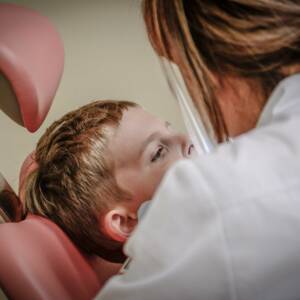
Visiting the dentist can be an uncomfortable experience for anyone, but it’s often extra difficult for children and adults who have autism. The practitioner’s office is full of potential for sensory overload, from the bright lights to the unfamiliar sounds to the strange sensations of having other people clean and check your mouth.
Fortunately, I’ve had the privilege to work in family dentistry for 17 years, and I can assure you that it’s very possible for autistic patients to avoid sensory overload and have a positive experience at the dentist’s office. Here are three simple tips you can follow to feel comfortable while taking care of your dental health.
Special care dentistry is a growing field that most dentists are now required to have at least some understanding of. That means that most dentists will have at least some knowledge of how to make an autistic patient more comfortable. You should always call your dentist (or at least their office) before an appointment and communicate your needs and any concerns you have about setting up an appointment. In most cases, they will make accommodations – and if they don’t, it’s time to find a new practitioner!
Here are a few things a dentist might do to help you deal with the potential of sensory overload:
They may also be able to accommodate specific needs – after all, no one knows what makes you comfortable better than you do!
This is a piece of advice that we mainly recommend for child patients who are going to the dentist office for the first time, although parts of it may help adults as well. As you’re no doubt already aware, many autistic people struggle with sensory overload when they’re forced to spend time in an unfamiliar location, dealing with too many unfamiliar experiences at once.
Teaching sensory calming strategies at home can help children feel more comfortable with the idea of the dentist’s office. Some parents use videos or photos found online, or possibly storybooks about going to the dentist, to make their children more comfortable with the office and with what goes on during a dentist’s appointment. Some turn it into a game, where the parent acts as the dentist and the child plays themselves, going through the steps of a normal appointment procedure. This is an especially good way to work through some of the physical aspects of their visit: have your child lie flat with their hands on their stomach and practice opening their mouth as wide as they can.
Doing whatever you can to familiarize yourself with the dentist’s appointment at home will give you one less thing to worry about once you’re actually sitting in the practitioner’s chair.
Familiarization appointments, sometimes known as desensitization appointments, are perhaps the best way for autistic patients to avoid sensory issues at the dentist. This is simply an appointment at which no dental work is carried out, where the dental practitioner can show the patient the operating theater, introduce them to the staff they’ll be working with, and explain the function of every piece of equipment in the room. As the name implies, the idea is to familiarize yourself with the sensory “feel” of the environment so that it’s less overwhelming during the actual checkup.
Most dentists, like myself, want to do everything we can to make our patients’ visits into positive experiences. We know how scary going to the dentist can be, especially for those who experience sensory overload, and all we want is to make sure you feel comfortable coming back for regular checkups so that you can have a healthy life free of tooth pain and discomfort. So, communicate with your dentist regularly, make sure they can accommodate any special needs or concerns you have, and remember: you are your own best advocate!
Sensory Matters Podcast
Free Sensory Support Community
Can Chewigems Help Keep Your Teeth Clean?